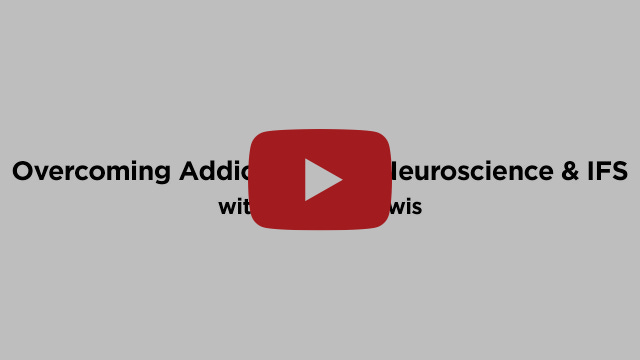The Micro and The Macro.
View this email in your browser

Issue 6 June 10, 2021

RESEARCH BRIEFS
Children with ADHD and substantial externalizing symptoms may be at a lower risk of suicidality if they are taking ADHD medication, a new study suggests.
An analysis of data from 11,878 children, of whom 1,006 were taking ADHD medications, found that while substantial externalizing symptoms were associated with increased suicidality risk in kids not taking ADHD medications, those taking the medications were not at increased risk compared to children without substantial externalizing symptoms, researchers reported in JAMA Network Open.
"There is a major gap in identifying actionable factors to reduce childhood suicide risk," said study coauthor Dr. Ran Barzilay, a child psychiatrist at the Children's Hospital of Philadelphia and an assistant professor of psychiatry at the University of Pennsylvania. "We asked whether taking ADHD medications changes the risk in kids with more externalizing symptoms. In this very large sample of children from age 10 to 11, our results suggest that in kids with substantial behavioral symptoms, ADHD medications were associated with a reduced risk. That hasn't been shown before."
Because the study was observational, it doesn't prove that the medications reduce suicidality risk and it can't explain how the medications might reduce the risk, Dr. Barzilay said. He suggested two hypotheses to explain the results.
What Can we Learn from the Worlds most Peaceful Societies
“Given the grinding wars and toxic political divisions that dominate the news, it might come as a surprise to hear that there are also amultitude of sustainably peaceful societiesthriving across the globe today. These are communities that have managed to figure out how to live together in peace—internally within their borders, externally with neighbors, or both—for 50, 100, even several hundred years. This simple fact directly refutes the widely held and often self-fulfilling belief that humans are innately territorial and hardwired for war.”
https://greatergood.berkeley.edu/article/item/what_can_we_learn_from_the_worlds_most_peaceful_societies

JUST LIKE ME
“Just Like Me”
"There’s a practice I like called “Just like me.” You go to a public place and sit there and look around. Traffic jams are very good for this. You zero in on one person and say to yourself things such as “Just like me, this person doesn’t want to feel uncomfortable. Just like me, this person loses it sometimes. Just like me, this person doesn’t want to be disliked. Just like me, this person wants to have friends and intimacy.”
"We can’t presume to know exactly what someone else is feeling and thinking, but still we do know a lot about each other. We know that people want to be cared about and don’t want to be hated. We know that most of us are hard on ourselves, that we often get emotionally triggered, but that we want to be of help in some way. We know that, at the most basic level, every living being desires happiness and doesn’t want to suffer."
PEMA CHODRON Welcoming the Unwelcome-Wholehearted living in a Brokenhearted World
PODCAST: Not Just Self Compassion But Fierce Self Compassion.
Learn all about Kristen Neff’s New work https://www.rickhanson.net/being-well-podcast-fierce-self-compassion-with-dr-kristin-neff/
Are Affirmations Crap? Actually there is some science behind them.
Learn all then you could ever want to know about them here https://positivepsychology.com/daily-affirmations/
Make your life complete by watching this

Minnesota Bill Would Remove Financial Burden of College for State's Foster Youth
Abbe Desai wants to be a teacher or maybe a flight attendant someday. At age 19, she’s still trying to figure it out. But while her future career is undecided, her path to get there, starting at Ridgewater College in central Minnesota, isall mapped out,and — as is the case for many of her peers raised in foster care — it’s a long and difficult journey. https://imprintnews.org/top-stories/minnesota-bill-would-remove-financial-burden-of-college-for-states-foster-youth/55720
The Neuroscience of Narcissism
This is an interesting article I read, from what I don’t think is a peer reviewed journal, but it seemed helpful. Use your discretion. From the cptsd foundation.
https://cptsdfoundation.org/2020/06/22/the-neuroscience-of-narcissism-and-narcissistic-abuse/
Anti Asian Attacks Continue. What Kind of Bystander are You?
To any Asian people who feel bewildered, angered, and gaslighted by white silence in your workplace, classroom, and personal life, I want to say this first: The silence is not acceptable. You deserve much better, and I’m tempted to end this piece here, with us. I’m exhausted by explaining.
Read more about this. https://time.com/6051948/educating-white-people-anti-asian-racism/
Video: Overcoming Addiction with Neuroscience and IFS

Training: Social Anxiety
I’ve attended mulitple trainings with LARRY COHEN and he is wonderful. CBT for Social Anxiety Disorder: An Integrative Strategy
Part 1 Tomorrow - Friday, June 11 2021 | 12:00 - 1:30 PM ET
Part 2 Next Week - Friday, June 18, 2021 | 12:00 - 1:30 PM ET
Featuring: Larry Cohen, LICSW
3 CE/CME Eligible
Webinar Description:
This intensive workshop provides an in-depth discussion of five evidence-based cognitive-behavioral strategies for the treatment of social anxiety disorder: behavioral experiments/exposure; cognitive restructuring; external mindfulness plus thought defusion; assertion training; and core belief change work. Attendees will learn the basics of how to apply, combine, and adapt these strategies to the needs of socially anxious individuals. Several of these strategies will be demonstrated during the session through role plays.
There will also be a discussion on how to design and implement exposures as experiments to test and modify automatic thoughts, underlying assumptions and core beliefs for the purpose of decreasing social anxiety and shame, and building self-confidence. Many client worksheets, instructional handouts and questionnaires are provided for use and adaptation in your own practices.
Learning Objectives:
Integrate the most effective strategies from all three waves of cognitive and behavioral therapies to improve the treatment of social anxiety disorder.
Design and implement exposures as behavioral experiments to test and modify automatic thoughts, underlying assumptions and core beliefs for the purpose of decreasing social anxiety and shame, and building self-confidence.
Train socially anxious persons in the use of external mindfulness and thought delusion (vs. meditation), and how to convey the rationale for this strategy to socially anxious clients.
Registration includes attendance for Part I on June 11, 2021 and Part II on June 18, 2021. Single day registrations are not available. To receive continuing education credit you must attend both webinars in the series (June 11 and 18). Detailed CE information will only be provided following Part II.
Register Now
Presenter:
Larry Cohen, LICSW Larry Cohen, LICSW, is cofounder and Cochair of the National Social Anxiety Center (NSAC), an association of 22 cognitive-behavioral therapy clinics around the United States dedicated to providing and fostering effective evidence based services for those struggling with social anxiety. Mr. Cohen is certified as a Diplomate in Cognitive Therapy through the Academy of Cognitive Therapy, which has also conferred on him the status of Fellow for having “made sustained outstanding contributions to the field of cognitive therapy,” Mr. Cohen founded and directs the Social Anxiety Help clinic in Washington, DC where, for the past 31 years, he has served well over 1,000 persons with social anxiety in individual CBT, as well as in 96 20-week social anxiety CBT groups.
Worry is an Unhelpful Friend and a Shoddy Fortune Teller
“Fortunately, there are many resources and therapeutic approaches for effectively reducing your worry. Some, such as mindfulness practices and acceptance and commitment therapy (ACT), focus on accepting worries and not struggling against them. These practices involve noticing your worries in a nonjudgmental way, and refraining from analyzing, resisting or acting on them. Worries are observed as though from a distance: you let the tumbleweed of worry roll by without getting tangled up in it.
In contrast, approaches such as cognitive behavioral therapy (CBT) attempt to actively change worry and its effects.” https://psyche.co/ideas/worry-is-an-unhelpful-friend-and-a-shoddy-fortune-teller
What I’m Reading: Carl Rogers
“I dislike it in myself when I can’t hear another, when I do not understand him. If it is only a simple failure of comprehension or a failure to focus my attention on what he is saying or a difficulty in understanding his words, then I feel only a very mild dissatisfaction with myself.
But what I really dislike in myself is not being able to hear the other person because I am so sure in advance of what he is about to say that I don’t listen. It is only afterward that I realize that I have heard what I have already decided he is saying; I have failed really to listen.
Or even worse are those times when I catch myself trying to twist his message to make it say what I want him to say, and then only hearing that. This can be a very subtle thing, and it is surprising how skillful I can be in doing it. Just by twisting his words a small amount, by distorting his meaning just a little, I can make it appear that he is not only saying the thing I want to hear, but that he is the person I want him to be.
Only when I realize through his protest or through my own gradual recognition that I am subtly manipulating him, do I become disgusted with myself. I know too, from being on the receiving end of this, how frustrating it is to be received for what you are not, to be heard as saying something which you have not said. This creates anger and bafflement and disillusion.”
— A Way of Being by Carl R. Rogers




Copyright (C) *|2021|* *|Kristen McClure LCSW|*. All rights reserved.
*|IFNOT:ARCHIVE_PAGE|**|LIST:DESCRIPTION|**|END:IF|*
Our mailing address is:
*|IFNOT:ARCHIVE_PAGE|**|HTML:LIST_ADDRESS_HTML|**|END:IF|*
Want to change how you receive these emails?
You can update your preferences or unsubscribe
*|IF:REWARDS|* *|HTML:REWARDS|* *|END:IF|*



